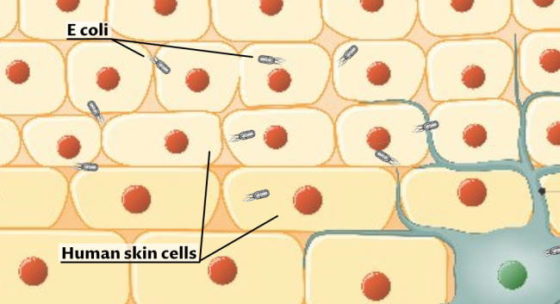Have you ever heard that the human body has fewer cells than the number of bacteria that lives inside their guts? Thus you, a human being, are more bacteria than yourself. However, despite bacteria’s tremendous impact on our lives, the statement isn’t accurate. In this article, I will explain why.
![]()
That is indeed true that our gut bacteria are more numerous than our own cells. However, not to the extent that popular media claims the ratio of bacteria to human cells is 10:1.
One study estimated that an average human body (a white male, obviously) has around 30 trillion cells and 38 trillion bacteria.
That means the ratio of bacteria living inside an average man to its own cells is 1.3:1. It is larger for women but still nowhere near the claimed 10:1 ratio. Likely, this ratio was calculated when excluding human blood cells (especially erythrocytes) from the equation, but why really. Erythrocytes are cells, after all.
The first myth is debunked. You are not only 10% human. The amount of your cells is comparable to the number of bacteria living inside you. But does that still mean that you are more bacteria than yourself? Well, not at all!
Bacteria are smaller and weigh less than human cells
Saying that you are more bacteria than human is similar to claiming that a ship is more nails than boards just becasue there are more nails in the ship. Why? Becasue size matters.
Planks are obviously larger than nails; indeed, we know a ship is made from planks, not nails. The same is with ourselves and bacteria. The number of cells does not matter if ones are larger than the others.
Below you can see an image of Escherichia coli, bacteria that are typical inhabitants of our guts, in a scale comparison to human skin cells.

Skin cells are of normal size, typical of what you would find in a human body, and E. coli are also quite an average-sized bacteria. Thus, you can get the picture: bacteria are much smaller than human cells.
Thus, even though there are slightly more bacteria in your body than your cells, bacteria take up less space. That makes sense, right, since they freely fit inside your gut, which takes up less space than the whole of you.
Even more so, the study also estimated that the total weight of gut bacteria is around 200 grams, which is close to half a pound. That is less than 1% of human weight.
Thus, rest assured, even though your gut bacteria are more numerous than your cells, you are still more than 99% human.